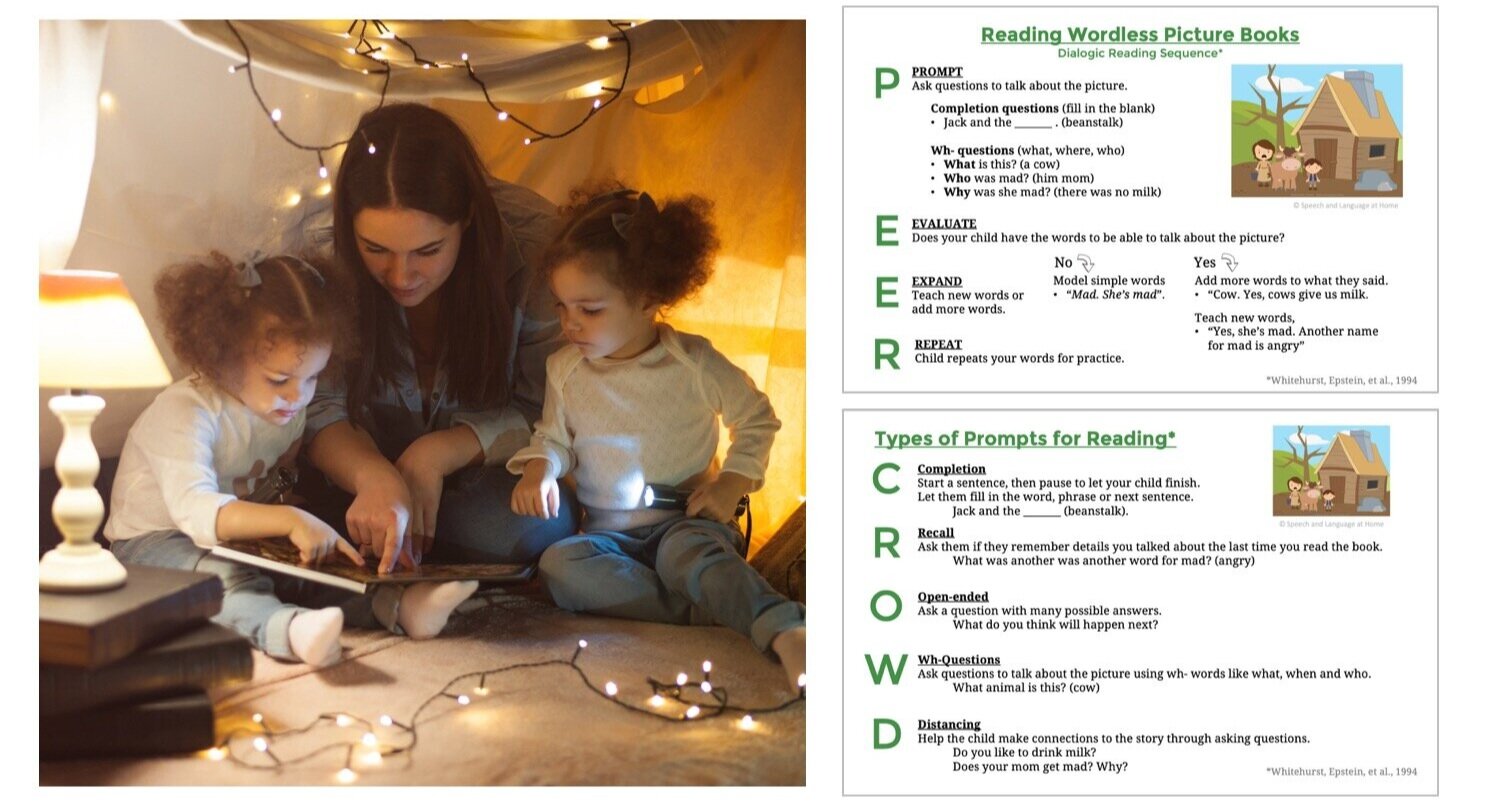Speech Therapy Activities During Daily Routines That Increase Family Engagement
Some parents may feel a sense of frustration or hopelessness about their child’s delays in talking. Wanting to help but not being sure what to do.
There’s good news.
You can help and it’s not as difficult as you may think.
One of the best ways to help a child learn language is during daily activities.
Practically any activity can be used to build language skills. Here are a few examples to get you started.
Parents can work on matching or same and different as kids are getting dressed.
Young kids can just put two socks together.
Older kids can talk more about how they are alike and different.
(Find Two That are the Same resource: No Prep Speech Therapy Activities for Preschool Parent Handouts)
Washing hands is a routine kids will get to practice a lot.
This can be a basic sequencing activity.
Talk to the parents about using words like first, and next, and last.
You can work on body parts: fingers, palms wrists , pinky, thumb
Also cover basic concepts like front/back, hot/cold, wet/dry, on/off
Meals are something else families do several times a day.
There are a lot of ways to bring in language.
For example: “There are a few blueberries”, or “Do you want more blueberries?”
I recommend helping the parents focus on one thing at a time so they don't get too overwhelmed.
Reading is a routine many families are familiar with.
Hopefully they are getting more time to read at home these days.
We can model strategies for reading over teletherapy.
Dialogic reading are great strategies for teaching families.
There is a lot of research out there or you can watch video examples if you're not familiar. Basically helping parents ask better questions, expand ideas and not just reading what's on the page.
(Dialogic Handouts from Jack and the Beanstalk Wordless Picture Book)
We may also have more time to teach kids things that we have a habit of just doing for them.
For little kids this could be getting dressed. It will likely be something different for older kids.
Talk to the families about what they may be struggling with.
Brainstorm ideas together to help their kids become more independent.






